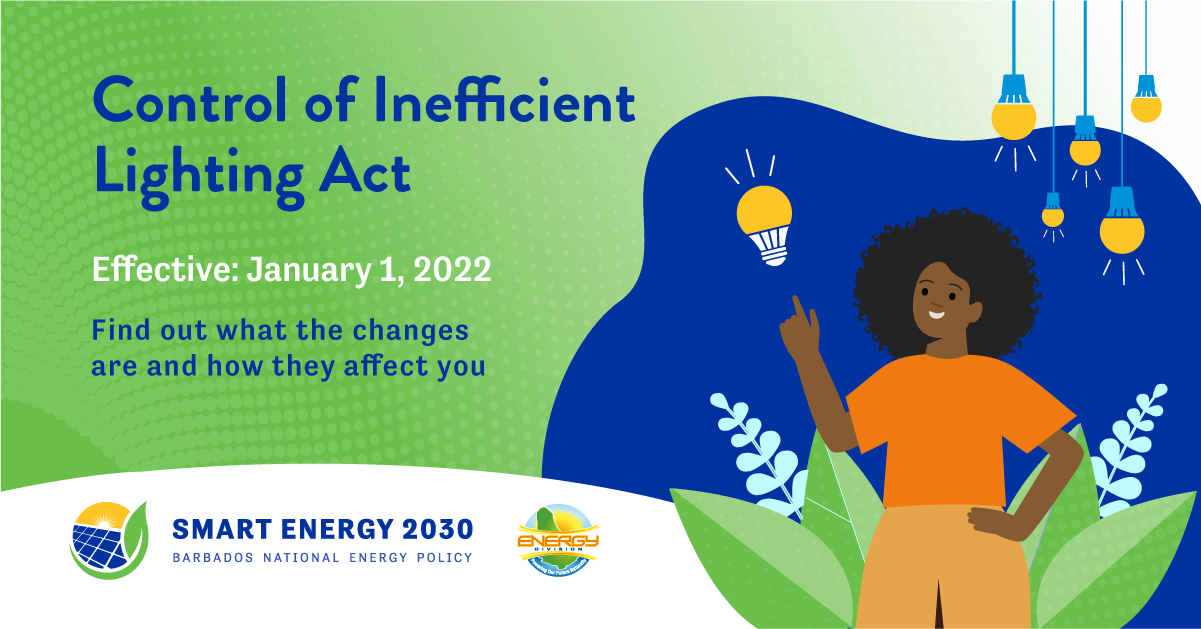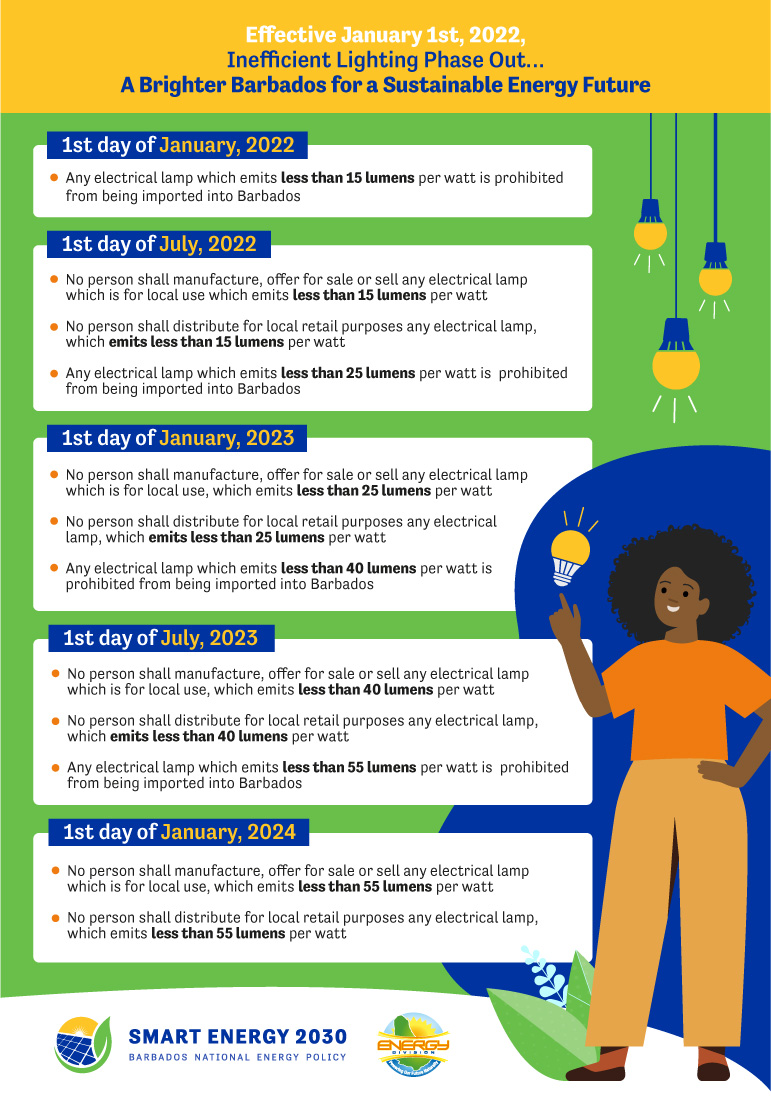
After January 1st, 2022, Barbados will be more lighting efficient.
The Control of Inefficient Lighting Act, 2021, has been enacted to provide for the phased elimination of the use and sale of inefficient electrical lamps in Barbados.
The incandescent light bulb has existed for approximately 142 years but given the global need to reduce carbon emissions has become obsolete as incandescent bulbs are inefficient as they waste most of their energy creating heat.
The natural successors to the incandescent bulbs are Compact Fluorescent lamp (CFLs) and Light-emitting diode (LED) bulbs, which use 60-90 per cent less energy than incandescent lighting and have a life span that is approximately 3 (CFLs) to 25 (LED) times longer.
The importance of efficient lighting
The phase-out plan was part of Government’s sustainable energy programme geared at reducing the cost of energy in Barbados, increasing energy security and mitigating the negative effects of energy consumption on the local and global environments. The programme acknowledged that while most energy efficiency technologies were economically and commercially viable in Barbados the uptake in the country was limited.
Energy efficient lighting will play a significant role in achieving Barbados’ energy efficiency potential. A study conducted on the Sustainable Energy Framework for Barbados (SEFB) revealed that energy efficient lighting technologies are among the most viable energy efficiency interventions available – as well as those that have the shortest payback periods.
Energy efficient lighting measures are also relatively low cost, and easy to implement compared to other energy efficient technologies. The SEFB study estimates that energy efficient lighting could represent about a third of potential savings of electricity for residential, commercial and public customers. Hence, it was considered that one way to address the barriers described above is to ensure that only energy efficient lighting equipment is available on the market, while energy inefficient lighting equipment is eliminated.
The transition to more efficient lighting is moving much slower than is desired given the focus on energy efficiency over the last ten years. The justification for phasing out inefficient lights is well established and can be realized while not creating financial hardship for the low income households. This can be accomplished by implementing a programme to assist low income homes. It should be noted that under the Smart Energy Fund financed by the Inter-American Development Bank (IDB) free lights were provided to residential customers of Barbados Light and Power Company Limited.
The phase-out plan will be implemented by restricting the importation and sale of energy inefficient lights. The prohibited goods will be based on the failure of lights to meet requirements set by a Minimum Efficiency Performance Standard (MEPS). The MEPS will be staggered such that it increases over time until only lights with the required level of efficiency are imported and sold. The MEPS will start at 15 lumens per watt and progressively reach 55 lumens per watt over two years.
Benefits of Efficient Lights
- Energy efficient lighting uses less energy without compromising on brightness and quality.
- Energy efficient lighting could represent about a third (33.333%) of potential savings of electricity for residential, commercial and public customers.
- Relatively low cost.
- Easy installation.
- Contributes to increasing Barbados’ energy security.
- Shortest payback period of energy efficient technologies.
Problems with Inefficient Lights
- Low efficacy – uses more energy as compared to an equivalent energy efficient light and produces more heat.
- Inflates electricity demand, which translates into higher fossil fuel imports and higher cost to consumers.




